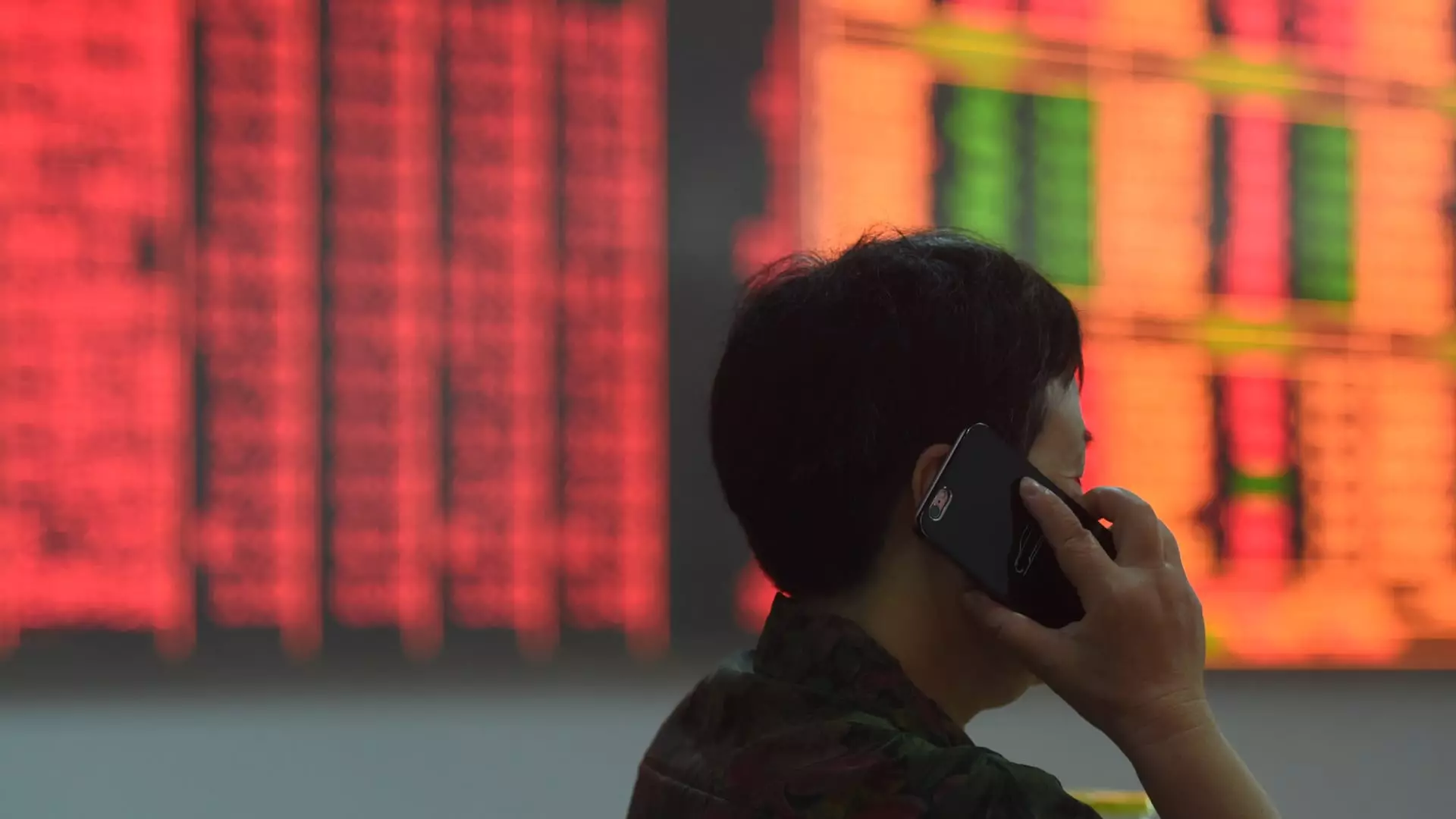As the second-largest economy in the world, China’s economic stability has rippled through global markets, influencing investment decisions, trade relations, and economic forecasts worldwide. Recently, the Chinese government has made headlines with a series of policy shifts aimed at bolstering the economy, yet analysts suggest that these moves have primarily served to enhance market sentiment rather than resolve pressing economic issues. The Shanghai Composite Index, for example, surged to a three-month high following reports of a high-profile meeting led by President Xi Jinping focused on economic reforms. However, while the government is acknowledging the depth of the economic malaise, it’s crucial to scrutinize whether these efforts are substantive or merely a short-lived market reaction.
China’s economic landscape is troubled; a prolonged slowdown has been exacerbated by a significant slump in the real estate sector, which is now in its fourth consecutive year of decline. With retail sales and industrial profits stagnating at 2% and barely registering growth, respectively, the need for a robust recovery plan is undeniable. Export activities have emerged as one of the few uplifting elements in this scenario, but the overall sentiment remains cautious. Analysts like Ting Lu from Nomura have emphasized the importance of not just recognizing but also directly addressing the structural issues within the economy.
The government’s recent foray into stimulating the market can be interpreted as an urgent response to these ongoing challenges. However, the effectiveness of such measures is still up for debate. Policymakers have yet to lay out concrete steps that will create enduring improvements beyond a temporary boost in market performance.
An essential point raised by various economic commentators is the disconnect between governmental policy announcements and actual consumer confidence. For instance, despite noteworthy measures like interest rate cuts put forth by the People’s Bank of China, many consumers remain hesitant to borrow. This reluctance stems from broader worries about economic stability and a perceived lack of support for long-term recovery measures. Paul Christopher from the Wells Fargo Investment Institute notably remarked that while fiscal stimulus announcements might seem promising, they may not significantly alter the psychological landscape of consumers or small businesses.
Such skepticism underscores the psychological toll that previous government crackdowns—on real estate developers and other sectors—have taken on both business owners and consumers. The path toward recovered confidence is fraught with the need for understanding and active engagement from the government.
While calls for fiscal stimulation have emerged, experts caution that hastily structured stimulus measures could lead to minimal or even counterproductive effects on economic growth. Nomura’s findings indicate that a lack of specificity in policy implementation could lead to ineffective results, limiting any potential benefits. Analyzed through this lens, the recent increase in interest rates could yield short-lived advantages if not accompanied by carefully curated policies that address long-standing economic issues.
Ting Lu’s assertion that the current momentum derived from “shock and awe” tactics must translate into concrete, actionable policies draws attention to the essential nature of targeted reforms. Encouraging borrowing, stabilizing the property market, and instilling widespread confidence are areas that require meticulous planning and execution.
The evolving context of China’s economic strategy also finds international resonance, with investors reevaluating the potential for growth in the nation. As evidenced by recent comments from hedge fund mogul David Tepper, there is a palpable sense of optimism that reformative measures could yield a renewed interest in Chinese markets. The CSI 300 Index’s impressive leap reflects a broader sentiment change, with foreign investment pouring into previously underperforming stocks. However, the overarching question remains—will this renewed interest endure, or will it dissolve amidst unresolved systemic problems?
The increasingly global perspective on China’s economic strategies emphasizes the critical nature of a well-functioning capital market for the country’s sustained growth. Insights from capital managers suggest a need for a more robust framework to support these nascent market advancements. The government’s position on encouraging positive capital market sentiments serves as a bid to restore faith in the financial sector, which has faced significant scrutiny in recent years.
In light of the current situation, it becomes increasingly imperative for Chinese policymakers to strike a balance between immediate market interventions and long-term structural reforms. While the recent policy signals may inject a temporary boost of optimism, addressing the underlying economic malaise will necessitate extensive groundwork. If achieved, these efforts could serve to stabilize both domestic sentiment and international confidence in China’s long-term economic trajectory.
While the recent euphoria in the stock markets and the governmental policies hint at potential revitalization, the true measure of success will lie in the effectiveness and longevity of these reforms. Only time will tell if China’s economy can navigate its myriad challenges and emerge into a new era of sustainable growth.

